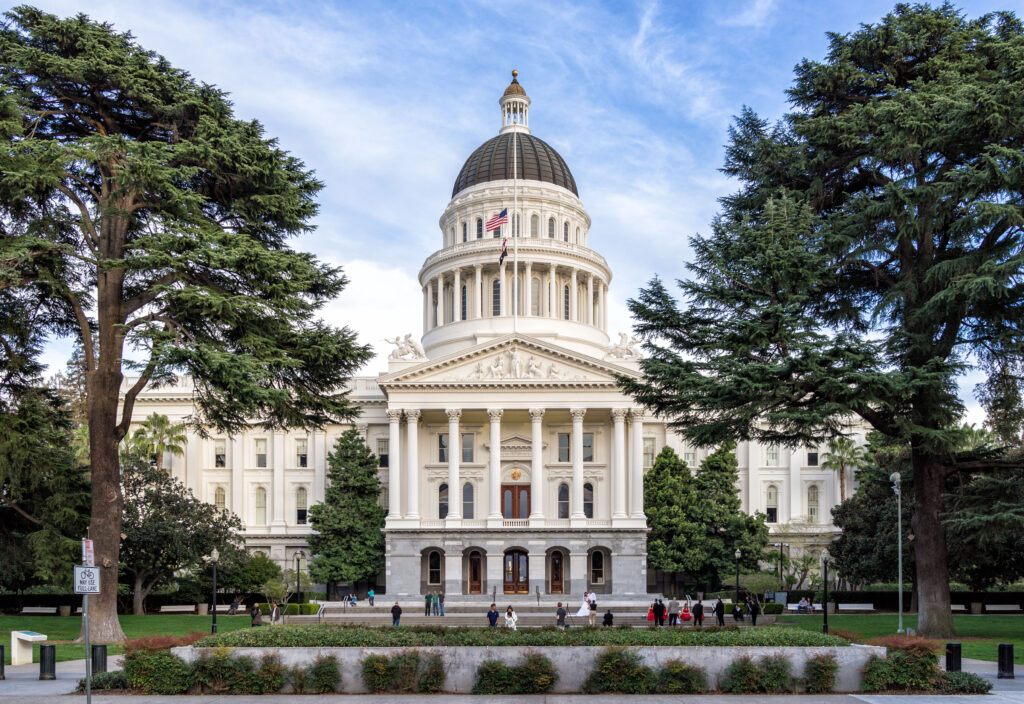Trump-Proofing Time at the California Legislature?
Governor Newsom has called a special session for December 2nd. How can California lawmakers ensure California’s climate and environmental progress in the years ahead?

During the last Trump administration, California emerged as a serious counterweight to federal government backsliding on climate and the environment, and last week, some California lawmakers publicly recommitted to resisting future Trump administration efforts to reduce environmental and climate protections. On November 7, Governor Newsom issued a proclamation calling the Legislature into a special session (the second in the past three months!) to consider legislation that would bolster the state’s efforts on this score.
The Governor’s proclamation specifically references two key priorities: (1) providing funding to California DOJ and other state agencies to litigate against the Trump administration, both to affirmatively challenge Trump policies and to defend California’s; and (2) prompting state administrative efforts to mitigate the impact of Trump administration actions.
What could legislation that achieves these goals look like? Here are a few things legislators could consider:
- Measures to prevent backsliding if current federal protections disappear. This isn’t a new concept—bills in this vein have been proposed before, and one even passed (before being vetoed) in 2019. While California already has robust environmental and climate laws, Biden-era standards on harmful PM2.5 pollution, PFAS/PFOA, and methane emissions, among others, could be impacted and in need of a state-level backstop. The Legislature could adopt language requiring the state to enforce the current federal standards, or to require state regulators and air districts to adopt regulations that are no less stringent than existing federal standards.
- Making sure state agencies are well-positioned for the inevitable onslaught of litigation. As the Governor’s proclamation suggests, and as it did during the first Trump administration, California is likely to find itself in court a lot over the next four years. The state will certainly be called upon to defend important climate and environmental policies, and to go on the offensive when federal government actions undermine California’s progress—for example, the state is already anticipating revocation of its EPA waiver for its zero-emissions vehicle mandate, and there are multiple outstanding waiver requests that an incoming Trump administration is likely to either revoke or deny, depending on their status at the time Trump takes office. Duking these issues out in court will require not only lawyers, but state agency staff resources to build out ironclad evidentiary records. The Legislature can collaborate through the state’s budget process to make sure the resources for these efforts are there.
- Ensuring adequate financial resources to keep California’s policies on track. California can also use the power of the purse to help provide stability to markets and protect important state resources. Uncertainty about federal regulatory policy and future federal government investment in clean energy and green technologies could discourage investors, but California may be able to serve as some degree of a counterweight by moving forward with in-state projects and providing state incentives for the continued development of greener tech. On another front, concerns that a Trump administration will decline to protect critical species habitat and tribally-significant lands could be mitigated by state efforts. While California lacks control over federal lands, it can devote resources to preservation of state lands consistent with meeting its 30×30 conservation target. Similarly, the state can combat potential changes to federal wildfire and forest management policy by staying the course on funding key wildfire prevention efforts. On these last two points, there was some good down-ballot news: Californians approved Proposition 4, a $10 billion climate bond, by a wide margin. Bond legislation already required funds to be earmarked for wildfire and forest resilience programs, biodiversity protection, and park creation, among other things; staying the course in providing these resources will help mitigate changes made at the federal level.
Whatever the California Legislature does when it comes into session in December, one thing is clear: The state is in for a years-long battle with the Trump administration. The special session will kick off a prolonged effort to ensure California continues to lead on climate and the environment, issues hugely important to the majority of California voters. But California lawmakers will need to be prepared to iterate as this saga unfolds—if there’s one thing the last Trump administration taught us, it’s that the policy choices that will be made at the federal level in the coming months and years are anything but certain.







Reader Comments